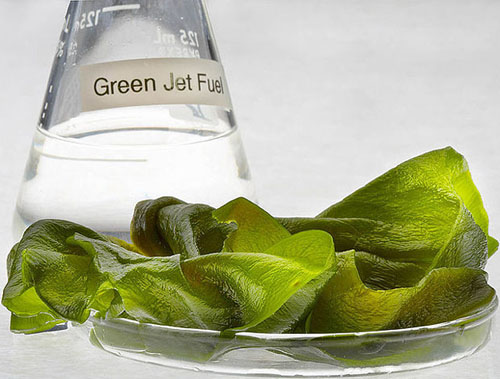Researchers from University of Toledo are developing new ways to convert algae into bio fuels. The process is to grow algae in waste water, harvest the grown algae and break them down into fuels.
Though the process to turn algae into fuel is already known, the researchers are trying to find new ways to make the process more efficient and economically possible.
U.S. Department of Energy granted $3 million to researchers Sasidhar Varanasi and Sridhar Viamajala from Toledo university’s chemical and environmental engineering department. Along with them, Kana Yamamoto, an assistant professor of chemistry also received $1 million grant from National Science Foundation.
Crops like corn and soybeans are already used for creating bio fuels but only a few processes have been done with algae as it isn’t readily available. “We are looking at algae at a different light,” Mr. Viamajala said. “It’s not a food crop, it’s a fuel crop.”
The harvested algae release carbon dioxide when burnt but unlike fossil fuel the CO2 is taken out of the atmosphere by the growing algae.
High oil prices, demands for foods and bio fuel sources, world food crisis have initiated the algal culture for producing vegetable oil, biodiesel, bioethanol, biogasoline, biomethanol, biobutanol and other biofuels.
Algae can be grown on any waste water or ocean water and has no negative effect on the environment. Cost of algae is high per unit mass but still claimed to yield 10 to 100 times more fuel per unit area than other bio fuel crops.
The researchers from the university is partnering with researchers from Montana State University and the University of North Carolina at Chapel Hill and with the city of Logan, Utah, and a private Cleveland-based firm.
The researchers are using facilities like waste water plants for growing algae rather than collecting algae from lakes. The naturally occurring algae are too diluted for harvesting purposes.
Algae does not require fertilizers to grow, they take up waste nutrients from water. The processes for producing bio fuel from algae is estimated to take three or four years to become economically viable.
Source: University of Toledo
Related posts:
– Bio Electronics That Dissolves In Liquid
– World’s Largest Off-Shore Wind Turbine 2014
– Mechanical Shoes That Plant Seeds
Algae does not require fertilizers to grow, they take up waste nutrients from water. The processes for producing bio fuel from algae is estimated to take three or four years to become economically viable.
Source: University of Toledo
Related posts:
– Bio Electronics That Dissolves In Liquid
– World’s Largest Off-Shore Wind Turbine 2014
– Mechanical Shoes That Plant Seeds


